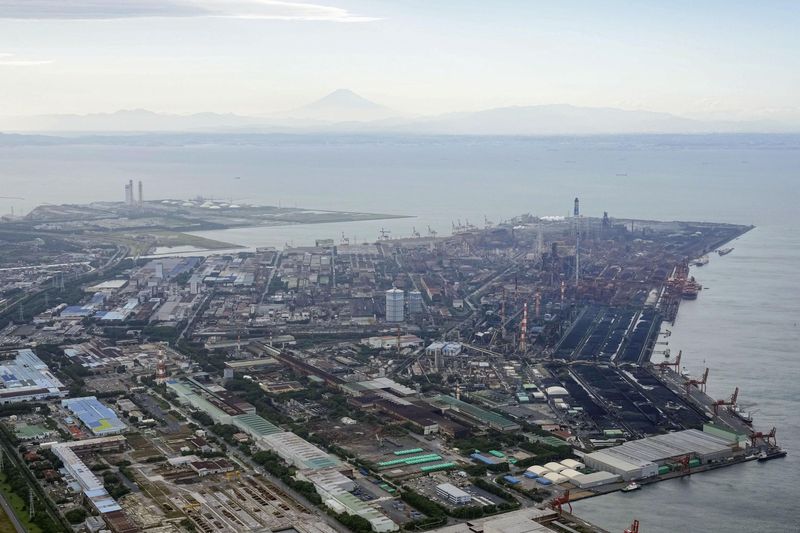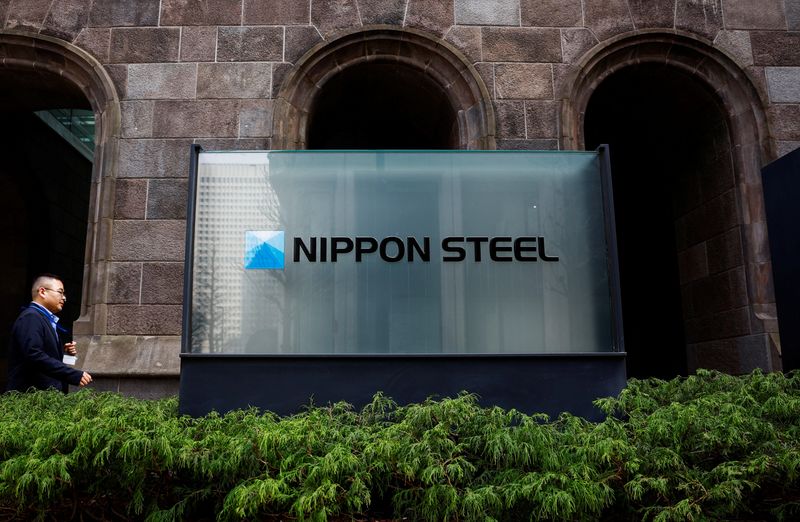By Tim Kelly, David Dolan and Aishwarya Jain
TOKYO (Reuters) -Japanese Prime Minister Shigeru Ishiba has sent a letter to President Joe Biden asking him to approve Nippon Steel's acquisition of U.S. Steel, to avoid marring recent efforts to strengthen ties between the countries, according to two sources familiar with the matter.
Biden joined a powerful U.S. labour union in opposing the $15 billion takeover of the storied American firm by Japan's top steelmaker and referred it to the Committee on Foreign Investment in the United States (CFIUS), a secretive government panel that reviews foreign investments for national security risks.
The deadline for the CFIUS review is next month, before President-elect Donald Trump - who has vowed to block the deal - takes office on Jan. 20. CFIUS could approve the deal, possibly with measures to address national security concerns, or recommend that the president block it. It could also extend the review.
"Japan stands as the largest investor in the U.S., with its investments showing a steady upward trend. Continuing this upward trend of Japanese investment in the U.S. benefits both of our countries, showcasing the robustness of the Japan-U.S. Alliance to the world," Ishiba said in the letter, according to a copy of the text seen by Reuters. The sources confirmed it was sent to Biden on Nov. 20.
"Under your presidency, this Alliance has reached unprecedented strength. We respectfully ask for the U.S. government to approve the planned acquisition by Nippon Steel so as not to cast a shadow on the achievements you have accumulated over the past four years," the letter said.
The U.S. embassy in Japan declined to comment. Ishiba's office deferred questions to the foreign ministry, which said it could not comment on the matter since it involved the management of an individual company.
Nippon Steel declined to comment and U.S. Steel did not immediately reply to a request for comment outside of U.S. business hours.
CHANGE IN APPROACH
Ishiba's direct approach appears to mark a shift in the Japanese government's stance on the deal, which became a political hot potato in a key U.S. swing state in the lead-up to the Nov. 5 presidential election.
Ishiba's predecessor, Fumio Kishida, had sought to distance his administration from the controversial takeover, casting it as a private business matter even as U.S. political opposition mounted.
The tie-up appeared set to be blocked when CFIUS alleged in a letter sent to the companies on Aug. 31 that the transaction posed a risk to national security by threatening the steel supply chain for critical U.S. industries.
But the review process was eventually extended until after the election to give the panel more time to understand the deal's impact on national security and to engage with the parties, a person familiar with the matter said.
Before Ishiba took office on Oct. 1, he said any U.S. move to block the deal on national security grounds would be "very unsettling" given the close relations between the allies.
Ishiba and Biden met for the first time as leaders on the sidelines of an international summit in Peru earlier this month.
Ishiba's letter said the pair were not able to dive into discussions on the economic relationship at that meeting due to time constraints, and that he wanted to follow up to bring his attention to the deal at a "critical juncture".
Nippon Steel has made various guarantees and investment pledges in order to win approval.
Ishiba reiterated in his letter to Biden that the deal would benefit both countries.
"Nippon Steel is deeply committed to protecting U.S. Steel workers and opening up a prosperous future together with U.S. Steel and its workers," Ishiba said.

"The proposed acquisition will enable Japanese and U.S. steel companies to combine advanced technologies and increase competitiveness, and will contribute to enhancing steel production capacity and employment in the United States."
It was not clear if Biden had replied to the letter.
